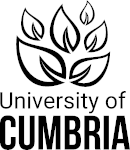
University of Cumbria part of consortium awarded funding to transform dementia support
Professor Amanda Taylor-Beswick is one of three professors from the University of Cumbria, Northumbria University and Newcastle University, working with digital health hub NortHFutures, NHS Trusts and other stakeholders across the North East and North Cumbria (NENC) region, as part of the Technology Empowered Dementia Independence (TEDI) Network Plus.
The TEDI network has been funded through the UKRI Engineering and Physical Sciences Research Council (EPSRC) and the National Institute for Health and Care Research (NIHR), in partnership with the Alzheimer's Society. It is being led by Professor Arlene Astell of Northumbria University. £1.6 million has been awarded to develop the network.
Technology has the potential to transform life for people with dementia by helping them stay physically, cognitively, and socially active. It can also be used to monitor progression of the disease and connect those in need of support with relevant services and resources. However, there is currently no coordinated dementia pathway in England or Wales that integrates technology and services to support those living with the condition.
With the highest proportion of people living with dementia per head of population in England, as well as significant socio-economic challenges, digital inequalities, and rural accessibility issues, the NENC region will provide the ideal location to develop and test this new approach.
Professor Amanda Taylor-Beswick brings expertise in digital transformation within health and social care, including ethical and practical innovations that enhance care, tackle social injustices, and improve digital competence in professional practice. Professor Taylor-Beswick is delighted to participate in the project, which ensures University of Cumbria involvement in research that will have a significant impact both regionally and nationally. She said:
"This initiative represents a significant step forward for people living with dementia, their families, and caregivers, offering them greater independence and improved access to the support they need. By integrating technology into dementia care, we can help alleviate pressures on NHS staff, ensuring more efficient and sustainable healthcare services. The University of Cumbria is proud to contribute to this vital work, driving forward digital innovation in health and social care to create meaningful, long-lasting change."
Over the next three years, TEDI Network Plus will focus on three key objectives. The first is to identifying gaps in the current system by mapping out the life course of a person living with dementia in the NENC region. This will highlight interactions with services such as hospital admissions and help pinpoint areas where technology and data-sharing could enhance support.
The second objective is to develop and test new solutions, with funding and support provided for collaborative projects between people with dementia, family caregivers, social care providers, healthcare professionals, and researchers. A core team of designers, developers, and dementia experts will work to create user-friendly and effective technological solutions.
The final aim of the project is to improve access to technology, with local technology hubs trialled across NENC to provide individuals with hands-on opportunities to explore, borrow, and receive guidance on assistive technologies. Held in accessible, community venues, these hubs will ensure that people with dementia and their caregivers can access tools that meet their specific needs, helping them maintain their independence for as long as possible.
TEDI Network Plus will also collaborate with other EPSRC-funded Network Plus initiatives to explore how their technological innovations can be integrated into dementia support systems.
Notes to editors
Further information can be found at: https://www.northumbria.ac.uk/about-us/news-events/news/transforming-dementia-support-through-technology-network/
